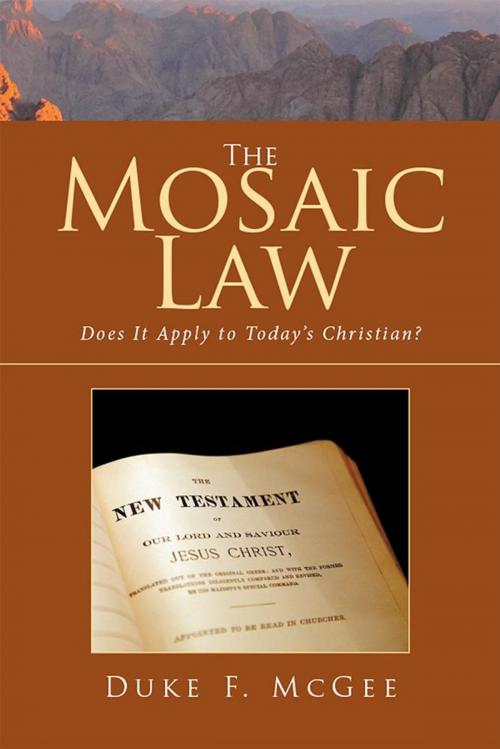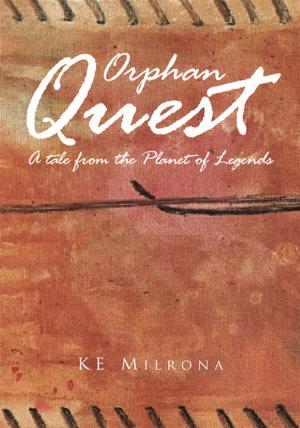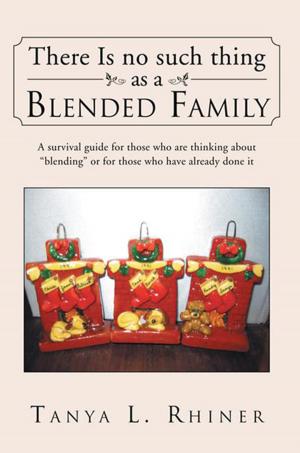The Mosaic Law
Does It Apply to Today’S Christian?
Nonfiction, Religion & Spirituality, Reference, Psychology of Religion| Author: | Duke F. McGee | ISBN: | 9781524541910 |
| Publisher: | Xlibris US | Publication: | September 22, 2016 |
| Imprint: | Xlibris US | Language: | English |
| Author: | Duke F. McGee |
| ISBN: | 9781524541910 |
| Publisher: | Xlibris US |
| Publication: | September 22, 2016 |
| Imprint: | Xlibris US |
| Language: | English |
Too many times, we read books, articles, or papers on Christianity, and we are left to wonder where the author is coming from or what his approach is for interpreting scripture. So right here, at the start, I would like to declare my method of interpretation and on which translation of the scripture I rest. First, I take the Word of God (scriptures) to be infallible, inerrant, and without contradiction. I believe that God said what he meant and meant what he said, and it is our task and responsibility to rightly divide the Word of truth. On all matters of life and spirit, the scripture is the final authority; in saying this, the scripture will be the primary source material for the whole of this paper. When speaking of the scripture, I am referring to the authorized version 1611. I believe this is the preserved Word of God for the English-speaking people. I realize this is another hotly debated topic, and we do not have the time or the space to debate it here, as this would be a distraction from the main topic. I will say though, outside of textual criticisms, biblical preservation, manuscript evidence, dynamic or formal equivalence translation, and a host other topics in this debate, it all comes down to thiswho is the final authority? We as Christians need to take a stand, we need to pick a version or translation that we believe is the Word of God and say, Thus saith the Word of God. If we do not, we set ourselves up as the final authority and not God; we dont like how one version says something, so we go to another and another until we find one that says what we want or that proves our point. This is not being transformed by the Word of God but making the Word of God conform to us and our biases. It is a matter of faith.
Too many times, we read books, articles, or papers on Christianity, and we are left to wonder where the author is coming from or what his approach is for interpreting scripture. So right here, at the start, I would like to declare my method of interpretation and on which translation of the scripture I rest. First, I take the Word of God (scriptures) to be infallible, inerrant, and without contradiction. I believe that God said what he meant and meant what he said, and it is our task and responsibility to rightly divide the Word of truth. On all matters of life and spirit, the scripture is the final authority; in saying this, the scripture will be the primary source material for the whole of this paper. When speaking of the scripture, I am referring to the authorized version 1611. I believe this is the preserved Word of God for the English-speaking people. I realize this is another hotly debated topic, and we do not have the time or the space to debate it here, as this would be a distraction from the main topic. I will say though, outside of textual criticisms, biblical preservation, manuscript evidence, dynamic or formal equivalence translation, and a host other topics in this debate, it all comes down to thiswho is the final authority? We as Christians need to take a stand, we need to pick a version or translation that we believe is the Word of God and say, Thus saith the Word of God. If we do not, we set ourselves up as the final authority and not God; we dont like how one version says something, so we go to another and another until we find one that says what we want or that proves our point. This is not being transformed by the Word of God but making the Word of God conform to us and our biases. It is a matter of faith.















